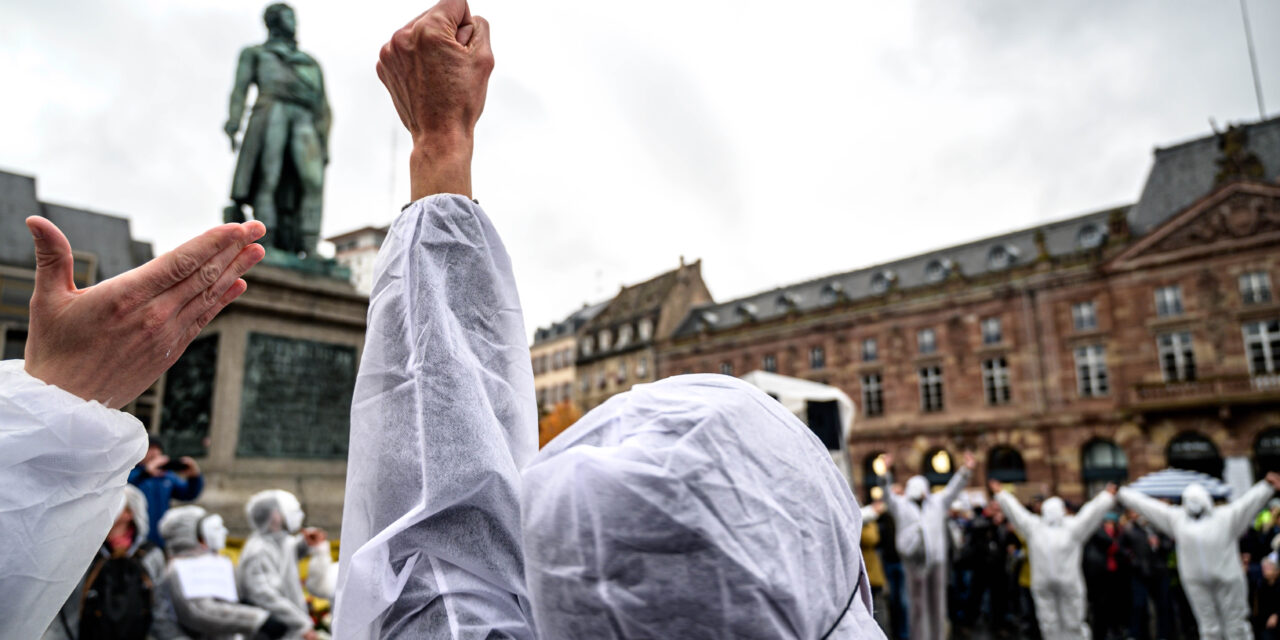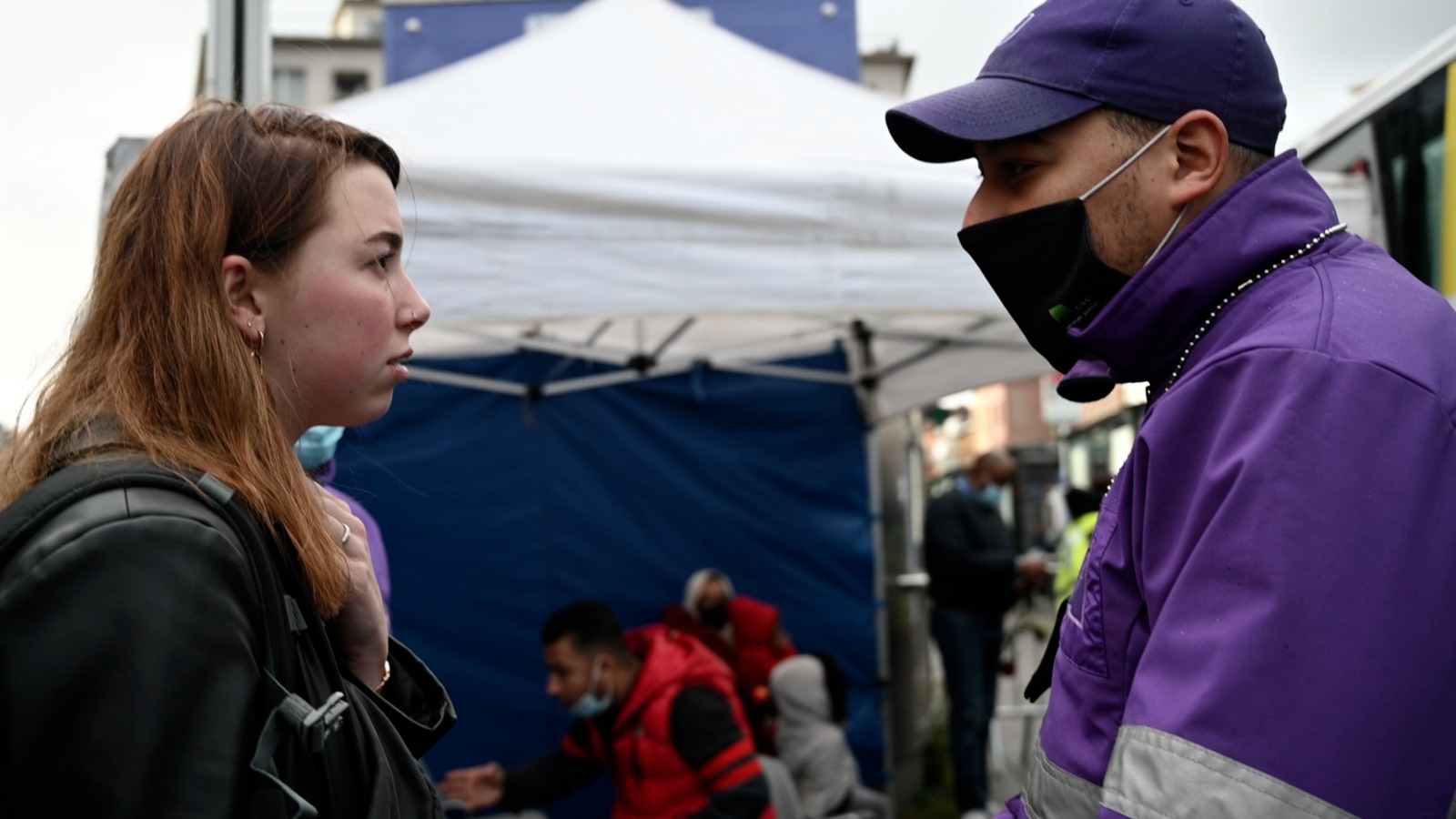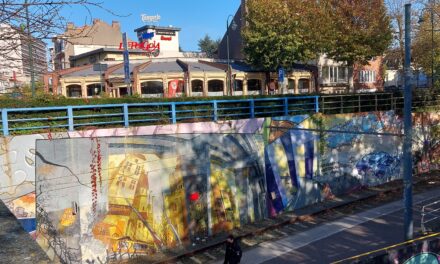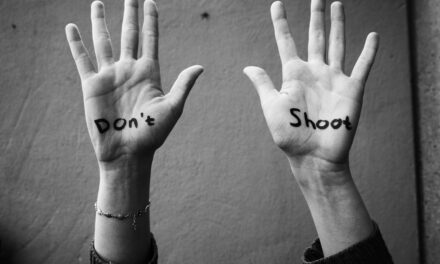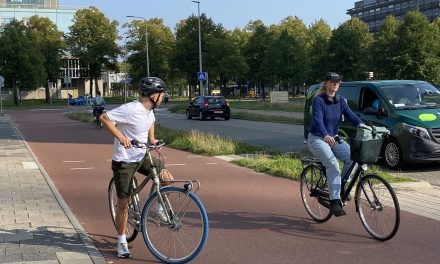Out of the 2,1 million inhabitants of the Brussels province, only 58.3 percent are fully vaccinated, as the latest data from the country’s health organization Sciensano shows. Among the people that have not yet had their vaccination, a particular crowd of anti-vaxxers is growing. Coming from every walk of life, anti-vaxxers have disbelief in the governmental covid policy and in use of vaccines. This is a development that is not only seen in Brussels, but can be seen in many European countries. What drives this group?
The people who don’t want to get a vaccine can be divided into a couple of groups, according to Inge Neven, crisis manager of the Brussels region. “They vary and have many different backgrounds, which is not surprising seeing the origin of the population of Brussels. We have over 180 nationalities”, she says. With 25% of the population who come from a foreign country, it makes for an interesting geographical area.
“We have about 1 on 3 who are living near the poverty line, and also many people don’t have a general practitioner or are facing problems with digitalization and such. We know it is quite difficult to reach them, and that is also what we see in the data. We have the lowest percentage of the vaccination degree of all of the Belgian regions. Lately we have been focusing on decentralized activities such as working with vaccination buses (so called vacci-buses), where people can get their vaccine without an appointment”, Neven adds.
Those vacci-buses are situated in areas such as Molenbeek-Saint-Jean, which is one of Brussels poorest neighbourhoods. Mezdi (27) comes from the area himself and works for the regional government as a neighborhood watch. He is standing in front of the vacci-bus that is located on the square of metro station Étangs Noirs. Contrary to the fact that he is accompanying locals to get their shot, he himself is not yet vaccinated. “I don’t know what is in the vaccine exactly, so I would like to get some more information before I take the shot. I’m also healthy and young, so I don’t see a reason why I would have to take it”, he explains.
Mezdi is talking to reporter Roos Verbrugh. Image: Pepijn Kouwenberg
Willingness to vaccinate
“This epidemic is becoming an epidemic of non-vaccinated people”, Belgian prime-minister Alexander de Croo said in an interview with De Specialist. His statement is in line with Neven’s vision. She reacts: “Our crisis team has put in all efforts to get as many people vaccinated as possible. It is really now the willingness of the people to get vaccinated. Amongst them we have different categories. We have a lot of male and female North-African originating people that have a lot of issues with the vaccine, such as a fear of fertility issues and the RNA-vaccines to be of impact on their DNA. We also have people that just don’t want to have any vaccine, they are more on the left side of the political spectrum and have more trust in homeopathic or herbal medicine. These are the people that we know we will never be able to convince. We also have many people that are facing other difficulties, dealing with poverty for example. For them vaccination is not a priority.”
Political extremism
On the other hand, we see a movement that is growing: a group that tends to criticize the governmental covid policy and have a strong distrust in the pharmaceutical industry. These so-called ‘anti-vaxxers’ come from all around the Brussels area and beyond. Are they a movement of far-right political extremism? According to Tom Meers, founder of Europeans United, not necessarily. “The people who join our demonstrations come from all parts of society. We think freedom or democracy or human rights aren’t for the left or the right, they are for everybody.” The organization was founded in March 2020 and focuses on ‘restoring the democratic values in our society’, according to Meers.
Meers’ organization has large community chat groups on social media platform Telegram, with over 12.500 members in the international chat room, and daily around 1800 active members.
Tom Meers, leader of Europeans United. Image: Roos Verbrugh
“What I especially want to change is that the power lies with the people again. In every European Country, the parliament isn’t used, it is bypassed and they are working by a decree. Those decrees are unconstitutional, but the judges still abide by it. In effect it means that we are going from a democratic regime to a totalitarian system. I don’t say that we are there yet, but we are moving towards it”, Meers explains. He slightly raises his voice when he starts talking about some of those measures in particular, such as the covid regulations. “We are not against measures to save peoples lives, but we are against unproportional measures, especially when they are unconstitutional.” As an example he mentions the price of the current covid regulations, that future generations will have to pay for.
Still, Meers does not want Europeans United to be seen as an anti-vaxxer organization. “There are a lot of anti-vaxxers who come to our demonstration as well, but we are not anti-vaxxers.” But then who are they, this specific group? In our documentary series ‘Battling Brussels: Anti-Vax’, we dove into this topic even more.
For a broader look into the protest, check our photo reportage here.
To watch our documentary, click below, or if it doesn’t work, click here.
by Pepijn Kouwenberg and Roos Verbrugh
